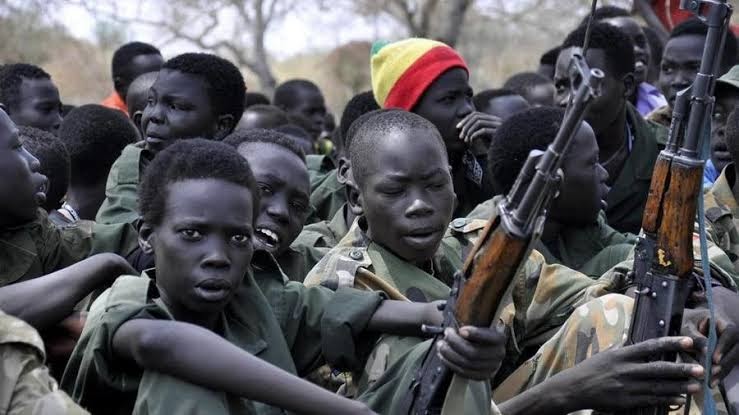
Save the Children has revealed that children living in conflict zones in the Central Sahel region across Mali, Burkina Faso, and Niger are at greater risk of recruitment by non-state armed groups after schools have been closed for the past two years due to increasing violence and COVID-19.
A new report carried out by Save the Children and published by the Migration Studies and Research Group, found a growing number of factors were driving children into conflict in the three countries.
Based on the information collected by Education Clusters in countries, 2,244 schools were closed in Burkina Faso in July, 1,664 in Mali in Aug. 2021, and 409 in Niger, leaving 838,603 children out-of-school across the three countries.
Also, more than 1.4 million people remain displaced in the region, more than half of whom are aged under 15, the report read.
Interviews conducted by the organisation in 23 locations with formerly involved armed groups found some children were forcefully recruited into conflict, others driven by poverty, while some for religious duty, security, and protection.
But mostly, according to the report, many were attracted by promises of pay, phones, or motorbikes by non-state armed groups.
“It remains difficult to determine how many children are associated with armed groups but researchers found the children recruited had dropped out of school or did not have access to a school system,” the organisation said.
“Some children as young as seven were illegally recruited to gather intelligence on local communities for the non-states armed groups.”
The organisation cited the case of Abdou*, 21, who joined an armed group operating in Burkina Faso while he was still a child.
“Because I was not in school and I was not working pushed me to join the armed group, I spent more than four years there. At the time of recruitment, what was important was to have motivated people, people ready to follow them,” Abdou said.
In Niger, Mouhamadou*, 22, joined an armed group for three years after learning about it through friends.
“Two things encouraged me to join the armed group. The first was for jihad for religion and the second, they said (they would) pay me. I was promised one day I would become a civil servant,” Mouhamadou revealed.
“Penalties were imposed on children for errors. The penalties are different depending on the nature of the error. If you haven’t slipped a lot, they deny you food, they lock you in a place where you don’t know where you are. They can even be killed.”
Eric Hazard, Pan Africa Policy Director for Save the Children said before the COVID-19 pandemic, eight million children were out of school due to violence and insecurity.
He added that the longer they are out of school, the risk of forced recruitment will only increase.
“Violence, poverty, and insecurity are threatening the safety of millions of children across Burkina Faso, Mali and Niger.”
Childrenmin the region are facing a dire protection crisis, he said, they need access to education.
From the $200 million needed to respond to the Education crisis in the Sahel, only 11 per cent have been mobilised so far, he added, while more than 4,000 schools are currently closed in the region due to insecurity, putting over 800,000 girls and boys at an increased risk of recruitment.
In a new Policy Brief released on Wednesday, Oct. 20, Save the Children called on governments in the Central Sahel region and the international community to commit to funding education in emergencies, and protect children from recruitment.
The call comes ahead of the Fourth International Conference on the Safe Schools Declaration in Nigeria next week.
Support Our Journalism
There are millions of ordinary people affected by conflict in Africa whose stories are missing in the mainstream media. HumAngle is determined to tell those challenging and under-reported stories, hoping that the people impacted by these conflicts will find the safety and security they deserve.
To ensure that we continue to provide public service coverage, we have a small favour to ask you. We want you to be part of our journalistic endeavour by contributing a token to us.
Your donation will further promote a robust, free, and independent media.
Donate HereStay Closer To The Stories That Matter




